List of Nuts and Seeds
This list of nuts and seeds can give you ideas for healthy snacks and healthy packed lunches.
These are culinary nuts--food items regarded as nuts. That's somewhat different than botanical nuts.
Botanical Nuts
In botany, a "nut" is a kind of fruit with a precise definition:
A fruit with a hard shell; a seed within that is unattached to the shell; and the shell never spontaneously opens to release the seed.
The definition is not very relevant to culinary nuts.
Culinary Nuts
A culinary nut is just whatever is thought of as an edible nut. It's generally a kind of edible fruit with a hard shell, or it may be the edible seed of a fruit.
List of Nuts - Culinary
Beech Family
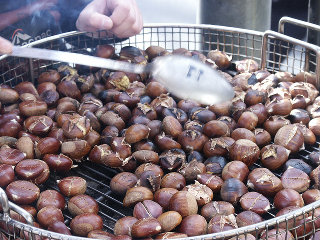
Family: Fagaceae
- Chestnut
- Chinkapin
Birch Family
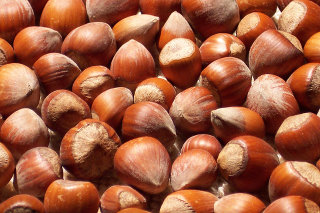
Family: Betulaceae
- Filbert
- Hazelnut
Cashew Family
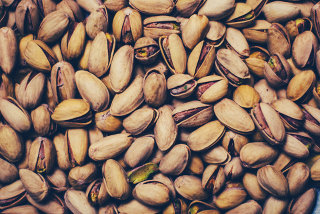
Family: Anacardiaceae
- Cashew
- Pistachio
Other family members: mango, poison ivy, poison oak, poison sumac.
Legume Family
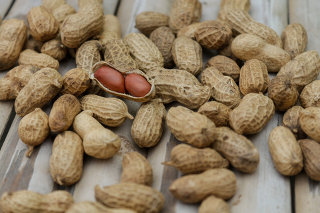
Family: Leguminosae
- Peanut
See Types of Vegetables for other legumes.
Palm Family
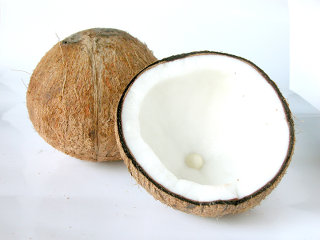
Family: Arecaceae
- Coconut
See List of Fruits for more palm family fruits.
Pine Family
Family: Pinaceae
- Pine nut
- Pinyon
Protea Family
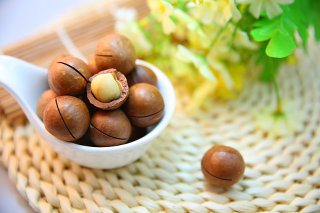
Family: Proteaceae
- Macadamia
Rose Family, Plum Genus
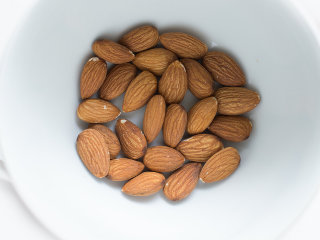
Family: Rosaceae
Genus: Plum
- Almond
See List of Fruits for more Rose family fruits.
Sapucaya Family
Family: Lecythidaceae
- Brazil nut
- Paradise nut
Walnut Family
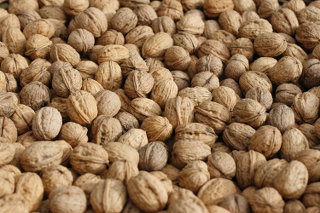
Family: Juglandaceae
- Black walnut
- Butternut / White walnut
- English walnut / Persian walnut
- Heartnut / Japanese walnut
- Hickory nut
- Pecan
List of Seeds
Composite Family
Family: Compositae
- Safflower
- Sunflower
See Types of Vegetables for other members of the Composite family.
Flax Family
Family: Linaceae
- Flaxseed
Gourd Family
Family: Cucurbitaceae
- Pumpkin seed
- Sesame seed
- Poppy seed
- Almond
- Beech nut
- Brazil nut
- Butternut
- Cashew
- Chestnut (Chinese, American, European, Seguin)
- Chinquapin
- Coconut
- Filbert / Hazelnut
- Ginko nut
- Hickory nut
- Lichee nut
- Macadadmia nut / Bush nut
- Pecan
- Pine nut / Pinon nut
- Pili nut
- Pistachio
- Sheanut
- Walnut (English, Persian, Black, Japanese, California), Heartnut, Butternut
See Types of Vegetables for other members of the Gourd family.
Pedalium Family
Family: Pedaliaceae
Poppy Family
Family: Papveraceae
Nuts According to the FDA
The Food and Drug Administration has created a list of tree nuts for the purpose of labeling allergic ingredients.
In 2004, the Food Allergen Labeling and Consumer Protection Act (FALCPA) identified "major allergens," believed to be responsible for 90% of true food allergies. It directed that these allergens should be labeled when they are ingredients in food.
The major allergens are: milk, egg, fish, Crustacean shellfish, tree nuts, wheat, peanuts, soybeans, and (added in 2023) sesame.
Tree nuts are major allergens, and so are sesame seeds and two legumes: peanuts (a culinary nut) and soybeans.
FDA's List of Tree Nuts
The FDA's Guidance notes that this list "may include a species that has no food use"!
Source: Food and Drug Administration, Guidance for Industry: Questions and Answers Regarding Food Allergens
Notes on Nut Allergies
Even though most nuts are not closely related, it's not uncommon to be allergic to all nuts.
Few people, however, are allergic to coconut.
Benefits of Nuts
I'm going to refer you to the excellent site Food's Healing Power for fascinating, user-friendly information about the health benefits of nuts!
